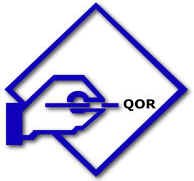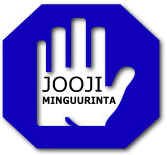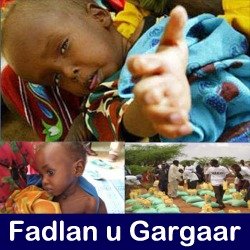A position Paper by HE Madobe Nunow, Reformist MPs and the Somali Justice and Development Party (SJDP)
15th January 2012
Executive Summary
When Somalia become a nation in 1960 the country was considered as one of the best African countries in the continent. Somalia even gave foreign aid to landlocked Zambia and Tanzaniain the late 60’s at their efforts at reconstructing their nascent economy and infrastructure.
 Today, Somalia is considered as the worst country in Africa and possibly the most corrupt and worst poorly managed state in the world. Dictatorship of almost twenty one years and a civil war of another twenty one years can be said to be the root causes of this systemic failures. We need to sincerely ask what has transpired since 1960 that we are facing a systemic governmental failure and what can be done about it?
Today, Somalia is considered as the worst country in Africa and possibly the most corrupt and worst poorly managed state in the world. Dictatorship of almost twenty one years and a civil war of another twenty one years can be said to be the root causes of this systemic failures. We need to sincerely ask what has transpired since 1960 that we are facing a systemic governmental failure and what can be done about it?
Surely, the Solution must come from Somalis themselves but there is also an external interference that is not letting this happen. Mostly geopolitical interests from neighboring countries termed as front line states (FLS).
Firstly, we see that a choice of governmental structure is important and the last peace process for Somaliaran for a period of almost three years from 2002-2004 resulting in the creation of the Somali Transitional Federal Charter of 2004 that gave way for the selection of a president by the parliament. It is important to note that Somaliland was not included in that peace process and we did also see the dilution ofSomalia’s governmental structure from that time – the international community being silent on whySomaliland was not involved. The chosen Executive and other leaders who were to run an already dividedSomalia could not achieve much due to lack of security, leadership, human and financial resources. The leadership who came into power then started fighting within themselves until other oppositions grew under their own feet resulting in the failure of TFG –I.
In Djiboutiin 2008 then came TFG-II that had a bloated legislature of 550 MPs that was created by UNPOS and the then SELECTED Executive could not achieve much when its term came to an end in August 2011. A piece of document called theKAMPALAACCORD was created that resulted in more confusion and was contrary to the Federal Charter of 2004. The Accord was a memorandum of understanding agreement between four parties two being witnesses and two being the principals. Even from a legal point of view the accord cannot represent the spirit and intent of a whole nation and cannot be termed as equivalent to a charter or a constitution.
Further, governmental institutional system failures have once again led to the creation of what is called the ROADMAP by UNPOS. The ROADMAP just like in the Somali peace process of 2002 once again resulted at removing Somaliland fromSomalia-why?
We, the people ofSomaliahave a solution in the form of the PEOPLE’S ROAD MAP for rebuilding a New Somalia. ASomaliathat is free from the clutches of neo-colonialism, fundamentalism, clanism and tribalism.
Finally, our solution lies with the selection of an Eleven member transitional executive council team by the current Parliament and other stakeholders that is going to implement the PEOPLE’S ROAD MAP and the preparation for a one-person one vote or a selection. The Eleven members together with traditional elders will select the 225 members of parliament before the current parliament ends on the 30th of May 2012.They will also implement the proposed Federal constitution that is to be passed by the current Parliament before they are dissolved.
The International community should fully support financially and technically the Transitional Executive Team that should reform the parliament and prepare a selection or election process for the whole of Somalia while still working under the Transitional Federal Charter of 2004 and the constitution of 1960.
It’s also mandatory that HE Augustine H. Mahiga be replaced as the representative person of the Secretary General of the UN forSomaliadue to his impartiality inSomalia’s political gymnastics.
Introduction
The situation inSomaliais no doubt the most neglected political and humanitarian crisis in the world. Over the past twenty-one years, the country has been subject to ongoing civil wars, disease, drought and floods without critical aid and support. Most observers agree that the region has degraded and the crisis has never been as severe as it is today. Currently, the immense gap between the level of need and the corresponding humanitarian response is devastating. Agencies are struggling to provide food, water, health care and other basic assistance to two million internally displaced people due to worsening security measures. Sadly, these organizations have not sufficiently adapted to the ground realities of this situation.
Today,Somaliais fighting a geopolitical war at all fronts, as victims of apathetic governments, they have been immersed in an unending civil war. On one front, religious fanatics are decimating their villages, homes, and people while on the other, internal discourse is forcing battle lines between clans, tearing the country apart from within. Many ofSomalia’s problems are due to lack of leadership. The Somali nation has not seen an effective leader free from corruption and tribal loyalties in many years.
The country has been lacking both a good governmental system and a leadership capable of properly handling problems of this magnitude and yet still able to unite the people.
AGENDA: FUTURE WORK PLAN FOR THE SOMALI FEDERAL TRANSITIONAL PARLIAMENT- ‘PEOPLE’s ROAD MAP’
On the basis of the Transitional Charter, Rules of Procedure of the Somali Parliament, the Constitution of 1960, and other laws, it is mandatory to prepare a national forward plan of action.
The new Speaker and his Deputies have challenges emanating from past failures of previous Speakers and their Deputies. The unfinished or pending work plan is as follows:
- Ø Past Bills and Draft unacted bills
- Ø Budget Proposal
- Ø Parliament reforms
- Ø Parliamentary administration and working committees
- Ø Multiparty election Bill
- Ø Law of theCapitalCityBill
- Ø Rules of Engagement Bill
- Ø Antipiracy and offshore Bill
Working Relations Between the TFP and TFI
The there should be a harmonic and cooperative, transparent, accountable relationship between the TFP and TFI’s based on the charter and other laws of the land.
To avoid repetition of past conflicts and increase efficiency and oversight work by parliamentary committees to their respective ministries and state owned agencies the executive arm should obey and respect the law of the land.
There is need to build good working relationships between line ministers and TFP on enhancing cooperation and passing of bills.
National Security
- Ø The TFIs, regional stakeholders and UN member states at large should work together in reestablishing security and defeating AL-Shabaab such that it becomes possible within the next coming six months that the TFG is in full control over all the South-Central regions of the country.
It is only after the firm control of the TFG over all the south- central regions of the country that it would be possible to begin ending the transitional phase and going into the phase of the formation of the new National Assembly
- Ø Establish District Security Committees for the purpose of coordinating/facilitating military and civil efforts to consolidate recent military/security gains
- Ø We advocate for the training of the national police and military forces within the country
The Road-Map
- Ø Parliament ofSomaliais fully mandated by the federal charter of 2004 as the highest legislative organ of Government and can repeal and reject any Act apart from acts that need a referendum. The Road Map, Garowe principal and theKampalaare not an exception.
- Ø The Kampala Accord was declared NUL and VOID on the floor of parliament considering that it was only a memorandum of understanding between four people only and cannot be said to be fully representing the Somali Parliament. In finality the Kampala Accord was not owned by the Somali people and Parliament but was forced upon a parliament that was weak to resist.
- Ø The ‘Road-Map’ lacks clarity on constitutional matters considering that it does not include Somaliland in Somalia which violates the unity and integrity of Somalia.
- Ø The Garowe Principles have deficits and amendments that are needed in the form of the Implementation process of the ‘Road Map’
- Ø We advocate for elections of Multiparty system of democracy rather than the ‘Selection process’ of parliamentarians along 4.5 rule or clan basis if time can be added for a census to be built and an electoral process of one person one vote method to be implemented that might need the extension of the transition for another one more year.
- Ø We see that the roadmap violates Somali EEZ and Territorial Integrity.
- Ø We call upon the International Community to support the constitution of 1960 in cooperation with the Federal System as the basis for the electoral role in the forthcoming elections.
- Ø The Roadmap advocates for the SELECTION process while we Advocate for the ELECTION process if we can get reliable logistical support for the implementation process
The Vision to replacing the ROAD MAP shall be termed as the PEOPLE’S ROAD MAP that is based on pure consultation between the people, parliament and TFI of Somalia. The basis of the PEOPLE’S ROAD MAP shall be based on a grass root and building blocks formula. That formula can only be realized after the liberation of the whole country from insecurity. The time frame for census, ID issuance, and elections shall be a maximum of 9 Months. The people’s Road Map has two options:
- Option-A: A selection Process where the New members of the Federal Parliament will be chosen not by the signatories of the ROADMAP in Mogadishu but by a committee of Eleven(11) Somalis together with traditional elders of Somalia who selected MPs in the 2004 Parliament. The Somali Justice and Development Party (SJDP) and current reformist MPs will also have two (2) members of the above committee. Somaliland to be part of the signatories to the new Constitution.
- Option –B: Going for an Election Process that involves all Somalia but with the cooperation of both Somaliland and other areas controlled by Alshabaab being pacified by dialogue or liberation by a coalition force consisting of Turkey, China, and Malaysia. That might require the removal of African Union (AU) forces from Somalia by August 2012. That might also raise the need for the extension of the current parliament beyond August 2012 to August 2013.
New Future Constitution
- Ø The national constitution of the country would remain to be that of the 1960, with possible amendments to fulfill the requirements of Federal System which was stipulated in the charter to drafted by the new National Assembly and put forth to a national referendum thereafter.
- Ø The current mismanagement and lack of ownership of the current constitutional making process of the ROADMAP was unwise, uncoordinated, unwarranted and at worst uneconomical but we are available to debate the proposed Draft Constitution.
Outcome of the Garowe Conference
The outcome of the Garowe conference was shallow, and unconstitutional due to its draconian agendas and violations of the current charter. The Garowe Principal advocates for the selection of MPs by signatories of the Mogadishu Road Map which we see as being unfair, unrepresentative and draconian. Further, the Garowe conference has damaged the trust within the TFP and TFI as well as peace loving Somalis who are looking towards a viable and working government in Somalia.
Parliamentary Reforms
- Ø We fully support the reduction and the formation of a new Parliament
- Ø It is only after the firm control of the TFG over all the south- central regions of the country that it would be possible to begin ending the transitional phase and going into the phase of the formation of the new National Assembly.
- Ø The formation of the new National Assembly would be based on a one-man-one vote representation from the regions and not on 4.5 clan representation.
- Ø The regions of the country upon which representation in the National Assembly would be based are the 18 current regions, and each region would be assigned a number of representatives in the Assembly in proportion to the number of eligible voters residing in the region.
- Ø Every 45,000 eligible voters would qualify to elect a representative in the National Assembly, but no person known to have Somali blood on his/her hands would qualify to become a representative.
- Ø A national Election Committee, with the mandate and resources to carry out a population census of the country, would determine the total number of representatives in the National Assembly, and would also allocate the number of representatives that each region would have in the National Assembly.
- Ø The national constitution of the country would remain to be that of the 1960, the charter, with possible amendments on Federalism to be drafted by the new National Assembly and put forth to a national referendum thereafter.
Approval of the Annual 2011
The international community must implement measures targeted against public officials of the TFG involved in diversion of public funds, including measures which par such officials from holding further public duties.
Other Laws of the Transtion Period
The parliament should approve the following laws:
- Multiparty law
- National Boundaries Bill
- Multiparty election Bill
- Law of the Capital City Bill
- Rules of Engagement Bill
- Antipiracy and offshore Bill
- Petroleum, Mining and Resources Bill
Compromise Solutions and Demands of the Somali Justice and Development Party(SJDP) and Reformist MPs
- Adopt Option A of the People’s Road Map at ending the transition period.
- Respect for Somali Parliament’s Decision at electing Hon.Madobe Nunow Mohamed as the new Speaker of Somalia’s Federal Parliament.
- We suggest that SJDP and Reform Minded MPs should have two (2) Members out of the eleven members of the Implementation Committee who are to choose new MPs in consultation with traditional elders of thee 2004 Somali Parliament selection process.
- Agree on the way forward by mutual consultations between the Current elected Speaker Hon. adobe Nunow Mohamed and the current executive.
- Harmonize the ROADMAP and the PEOPLE’s ROAD MAP within thirty days (30).
- We are not against the end of transition but we are against the process being pushed down our throat.
- We urge African Union and IGAD states to respect Somalia’s Integrity and call upon Turkey, China and Malaysia at bridging the gap created by the current constitutional crisis.
- We call upon the Internal Community and in particular Turkey, China, and Malaysia at empowering Court systems of Somalia.
- We urgently need the creation of a Constitutional Court that has Independence, teeth and capacity to deliver and call upon Turkey, China and Malaysia at helping us create and fund that court.
- Adopt option – B if Option – A is not accepted.
Contact: Email: awnuunow AT hotmail . com




































comment closed after 30 days / Jawaabaha waa la xiray ama waa la joojiyay wixii ka badan 30 cisho.